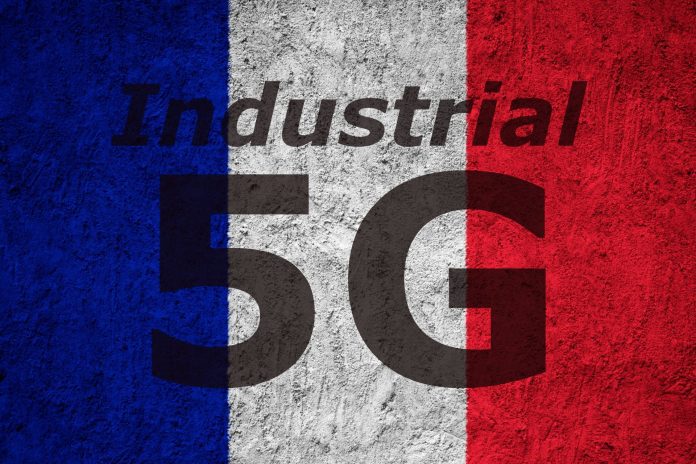The French government has announced funding for new national industrial 5G projects, as parts of its France Relance (France Relaunch) package. It has also raised alarm bells that the country is falling behind rival economies, notably Germany, on the rollout of 5G to stimulate its digital change in its industrial sector.
Financial newspaper Los Echos put the funding at €27 million for four industrial 5G projects, equivalent to about a third of their total forecasted costs, it said. The government said funding was being directed at key industrial 5G use cases, notably in healthcare and critical industry (under the project titles Vertical ISS and CRIIoT, respectively).
Separately, it has outlined four objectives for state funding of industrial 5G initiatives: to stimulate economic competitiveness; develop a sovereign French offer on telecom networks; implement an R&D roadmap on beyond-5G network tech; and strengthen training for local telecoms talent, and to attract foreign expertise into France.
French cellular IoT chipmaker Sequans has been appointed to lead the new CRIIoT project, claiming a “multi-million dollar” government grant to “secure national sourcing of strategic technology for critical connected objects in industrial, medical, scientific, and other markets”.
It is working with national railway company SNCF, as well as SNCF’s digital-change unit ITNOVEM, on the CRIIoT initiative. There is no detail, as yet, on the consortium and remit for the Vertical ISS project, looking at the role of 5G in France’s national health service.
Los Echos noted French manufacturers – alongside the general public – remain unconvinced by 5G, as yet. Telecoms Regulatory Authority (Arcep) said last month 8,600 5G cell sites have been deployed so far in France; most (5,640) are by operator Free. The French media has widely reported that environmentalists in Paris have even petitioned Mayor Anne Hidalgo to ban 5G rollout in the capital.
However, the French government is mindful of falling behind rival economies, notably Germany, which has pushed hard on ‘vertical’ 5G spectrum for industry. Daily newspaper Ouest-France quoted Agnès Pannier-Runacher, France’s minister for industry, in Toulouse, on a tour of France’s industrial heartlands, “pleading”, it said, for acceleration of the country’s industrial 5G strategy, to keep pace with Germany, as well as China and the US.
5G is a “pillar” for the French government’s strategy, it said, to “relocate business activity to France” and drive economic recovery. “We must continue to invest… We have to speed up, Germany has made a very strong commitment to 5G, China is deploying very quickly and has already developed very powerful applications,” Pannier-Runacher was quoted as saying.
“France must take its part in the development of 5G… 5G can allow [French enterprises] to accelerate… industrial processes and gain competitiveness, in a massive way. These are major challenges for French industry, for logistics, for citizens.”
The government has launched a new consultation on its 5G acceleration strategy as part of its 4th Future Investment Program (PIA4) to “develop sovereign solutions” for ownership and management of telecom networks, akin to the UK’s post-Huawei strategy for open-RAN networks.
The government stated: “[PIAF] must support the development of 5G uses for the benefit of industry and territories, support the French offer on 5G and future telecoms networks, research and telecom development, and training on network technologies.”
Pannier-Runacher participated in a round table in Toulouse, alongside Airbus, the Toulouse University Hospital, and local government, to discuss the role of 5G to stimulate digital change in public services and civic management, alongside healthcare, agriculture, and industry.
The event was picked up by local newspaper La Dépêche. “We must invest. It is one of the technologies in which it is necessary to invest, which also aims at the relocation of industries,” said Pannier-Runacher. The Toulouse University Hospital said it wants to boost its “network strategy and accelerate hospital care”.
Jean-Christophe Oulie, digitalization manager at Toulouse-based Airbus, was quoted: “5G is the key to digitization, especially for the aircraft of the future, connected, which will need to quickly download important data.”
Also in attendance in Toulouse last week was local internet service provider Alsatis, which is part of the CRIIoT consortium with Sequans and SNCF. It joins seven companies in total to develop 5G solutions for critical IoT applications, to run on both public and private networks. New 5G solutions will be based on Release 16 and 17 of the 5G NR standard, and beyond, “with a particular focus on enterprise markets”, said Sequans.
Others consortium members include telecom software firm Amarisoft, French technology research institute CEA-Leti, and embedded RF specialist AW2S.
Georges Karam, chief executive at Sequans, commented: “This award, together with the funding we have received from private 5G partnerships already in place, will enable us to intensify our efforts on development of the broadband and critical 5G IoT solutions we are currently working on. We are honoured to join hands with the excellent companies making up our 5G consortium and we look forward to delivering powerful 5G solutions that will benefit our economy, our industry, and our country.”
Sebastien Kaiser, connectivity and networks director at SNCF, said: “We are delighted to work with CRIIOT’s partners to define, experiment machine-to-machine solutions and their compatibilities with our industrial constraints coming from our diverse use cases, from predictive maintenance, rail network surveillance to real-time remote operations.”
Antoine Roussel, chief executive at Alsatis, said: “We intend to put our expertise and our technical infrastructure at the service of French industry’s renewed needs and sensitive sectors such as public health.”
Emmanuel Sabonnadière, chief executive at CEA-Leti, said: “CEA-Leti is eager to provide its expertise on mmWave communications for 5G industrial networks to enable low power and critical 5G IoT solutions and pioneer compact antenna arrays to help the French industry on the road towards the next generation in the mmWave spectrum.”

